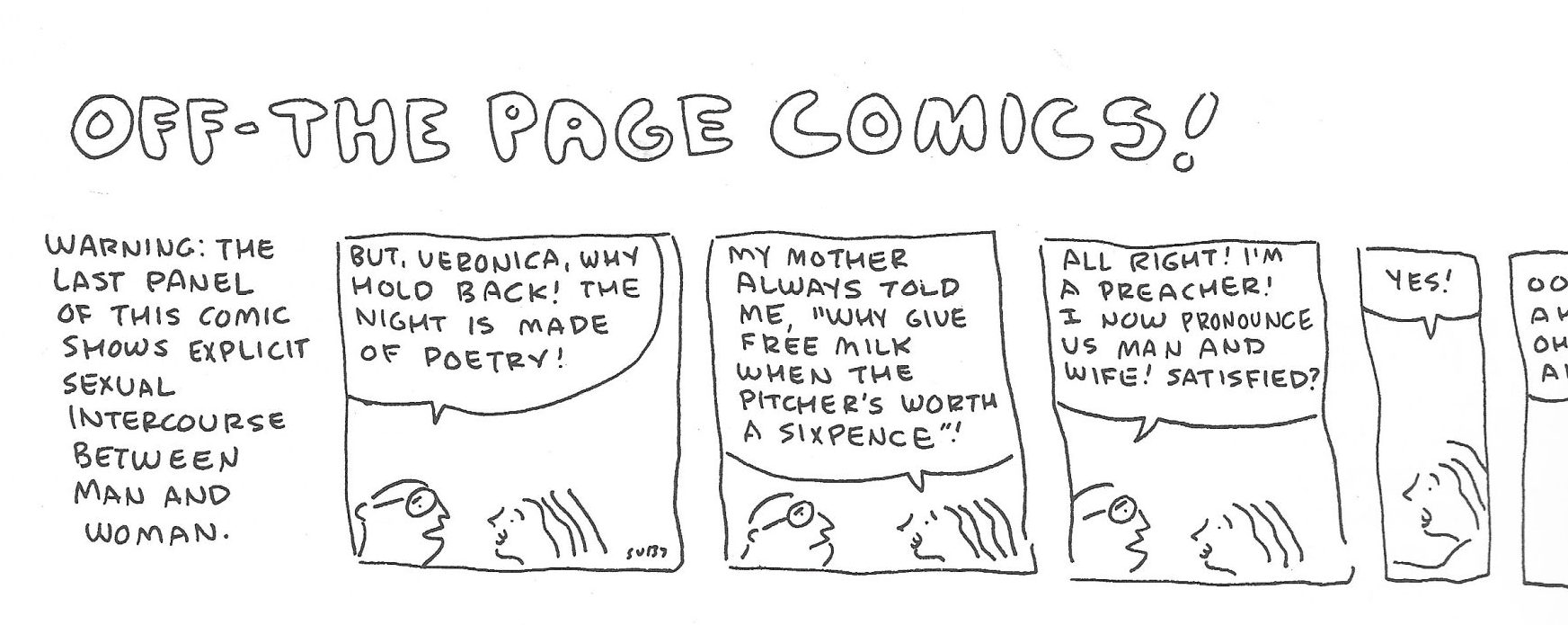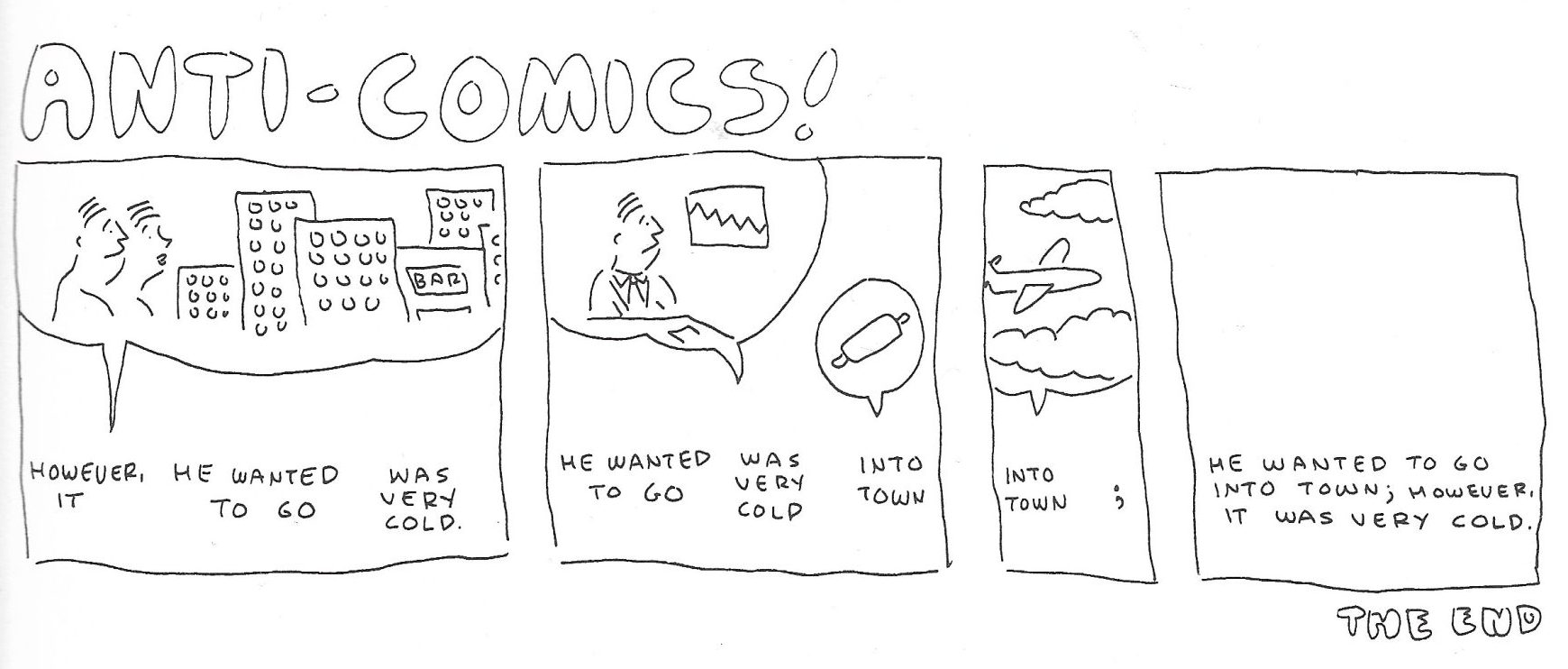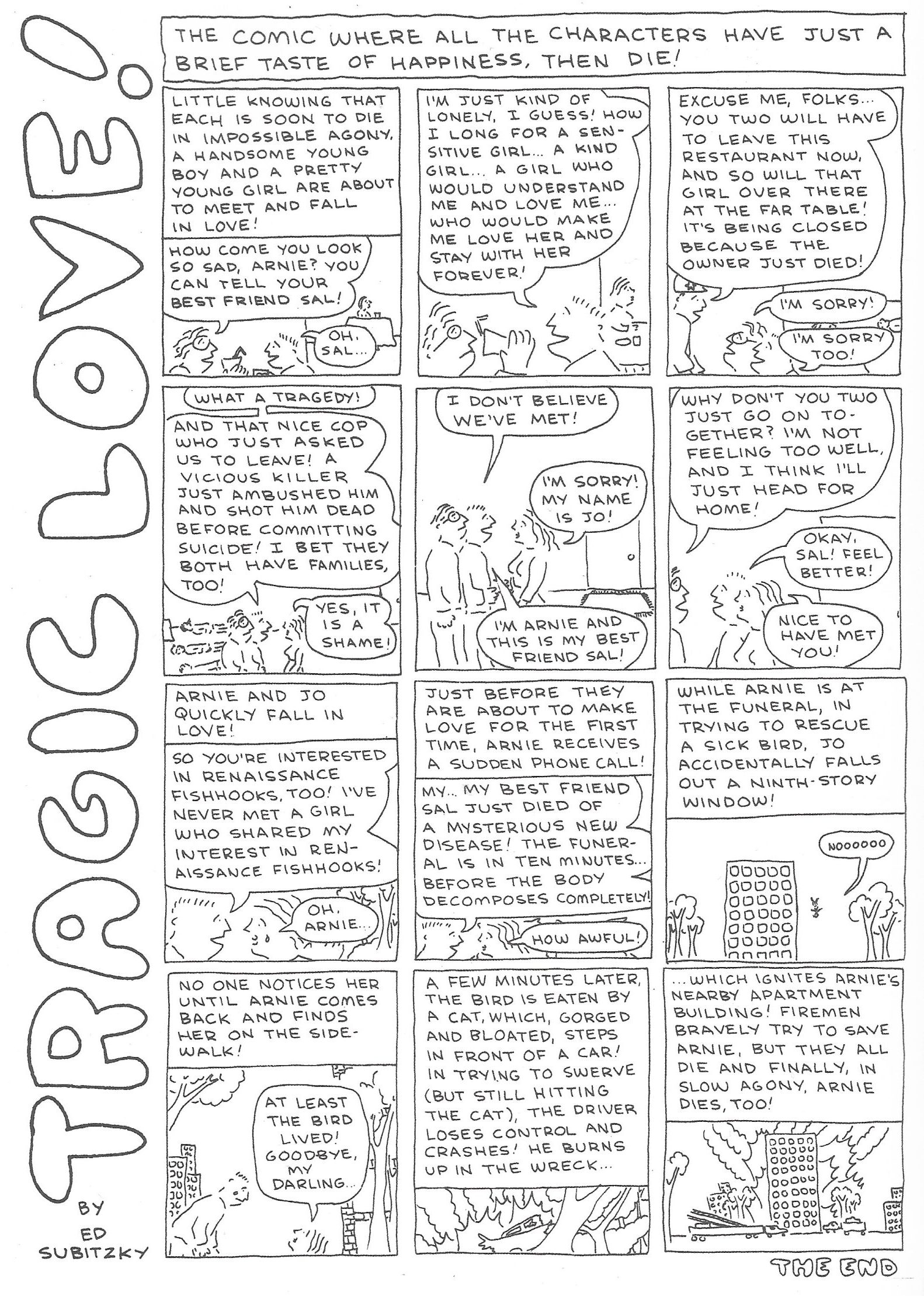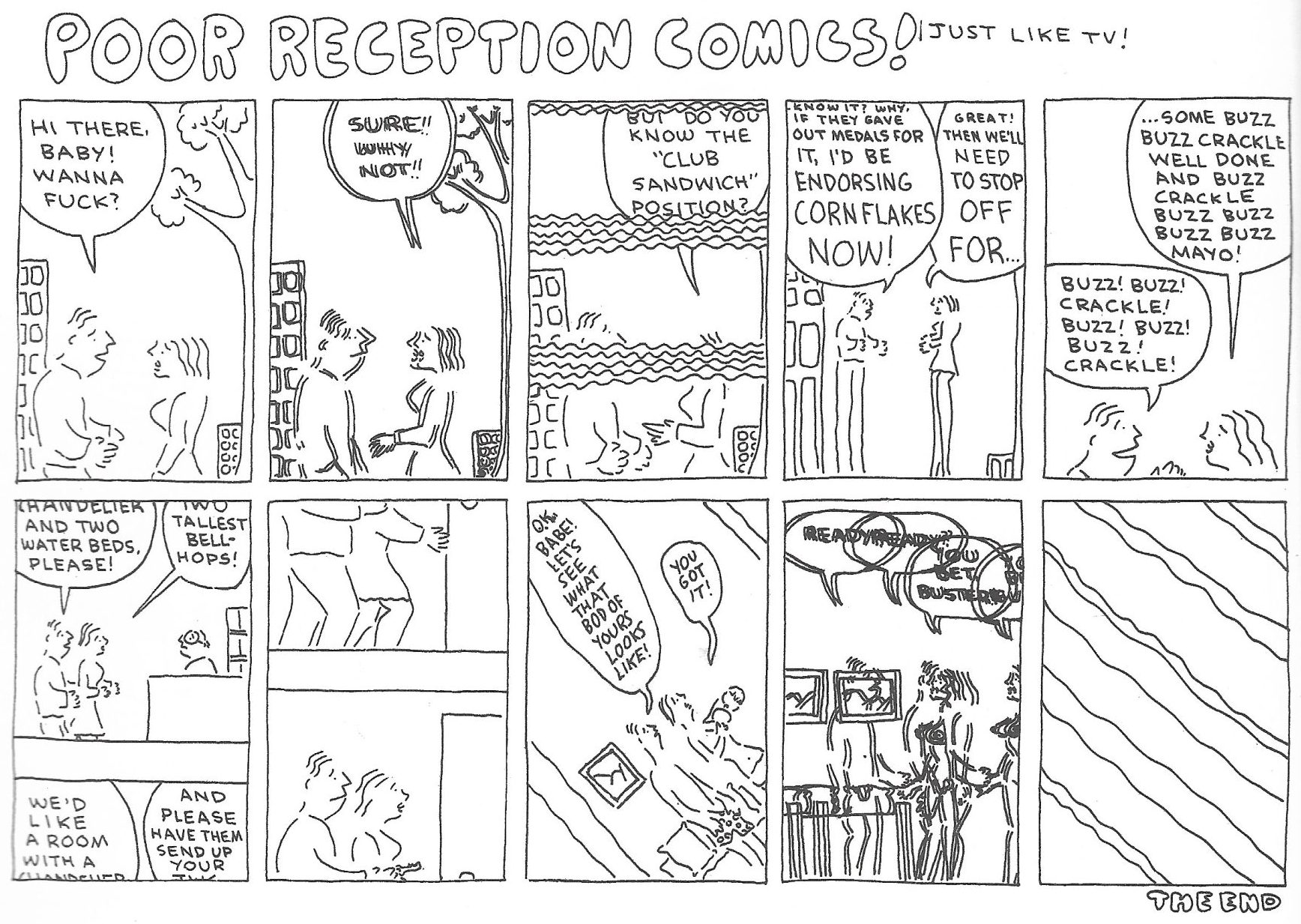Time teaches us patience, if we’re so fortunate, and encourages a longer, more intentional look at things we might have skimmed or scorned in our youth. As a teen reading National Lampoon in its 1970s heyday, I may have laid eyes on Ed Subitzky’s work, but it didn’t register with me. Present me wants to confront that callow youth and wise him up: “Here’s conceptual humor right up your alley, ya goofball. Read every word. Don’t ignore these!”
I am glad I get the work of Ed Subitzky now. It has made me shake with laughter, wowed me with its dissection of the corpus of comics, inspired me with its fearless formal exploration and delighted me with its minimal drawings that, in the magic of cartooning, suggest a bigger world. This long-overdue book is a great discovery from our recent past: a playful, risk-taking, revolutionary comedic vision that never fails to astonish. In the course of this formidable tome, we get to know Subitzky and his life story via an ongoing interview conducted by Mark Newgarden. This dialogue, interspersed through the book, sheds light on a man who was a natural fit for the National Lampoon mindset. His work provided a river of contrast that got into the cracks between the magazine’s more blatantly crowd-pleasing satirical articles and visuals.
Subitzky recounts, with evident bewilderment, how his work was accepted by the magazine’s cartoon editor Michael Gross, who chose one of the cartoonist’s most formally confrontational pieces, a four-panel strip called “Anti-Comics!” as his first Lampoon item. This is a poetic act of vandalism to comics in general. Its elements are scrambled to the extreme; then they’re reassembled in a devastating finale. This grand gesture is just a handful of wiggly lines and words, but they make an impact. “Anti-Comics!” seems to say: “If you made it through this, you can take anything I throw at you.”
His work became the Lampoon equivalent of Sergio Aragonés’ comics for MAD - marginalia that crept up on other, more conventional work, sometimes given its own page (or pages). In the magazine context it feels like something that was snuck into print at the last minute, without the editors knowing it happened. Subitzky’s playful, simple approach belies the mind-blowers he fashioned on a regular basis. Strips like “8 Comics in One!,” “Background Music Comics!,” “Torture the Characters Comics!” and “Assembly Line Comics!” turn the event of reading a comic strip into advanced (and rewarding) work. It feels, at times, like Subitzky’s comics read you; they are not a passive experience. As they unfold, they invite you to yank at the carpet under your feet, knowing you will tumble and fall with a child’s joy.
The interview segments reveal Subitzky’s intimidation and outsider status vis-à-vis the strong personalities who ran and influenced the Lampoon; he was never a member of the working staff and didn’t deal with the notorious office politics/clash of egos that marked the magazine’s finest years. His work was respected, liked and appreciated by his peers. The book features a few of his text pieces, and Subitzky recounts a moment when editor Brian McConnachie reinstated a passage Ed had deleted; “That was the only time the Lampoon ever edited my work,” he recalls. “And that was to put something back in.”
Those text pieces are comedic wonders, and I am grateful for their inclusion. I would invite the reader to take in “Stupidworld” (pp. 132-35) as their port of entry into this book. An essential rule of comedy is to commit to a premise and pursue it to its logical (or irrational) end. Subitzky does this with a master’s hand in a breathlessly funny piece that could only work in prose form. “Stupidworld” is one of the best things I’ve read in 2023; I will say no more. Another text item, “How I Spent My Summer,” is cited by its creator as one of his favorite works for the Lampoon.
Each strip in Poor Helpless Comics! is a full course with witty dialogue, inventive premises that go unexpected places and a comedic sensibility that evokes the similarly playful experiments/confrontations of comedian Andy Kaufman and the dry conceptual humor of David Letterman’s 1980s TV work. It’s no surprise that Subitzky became a writer and regular on the Letterman show in its first incarnation - an anarchic morning program I watched faithfully with the feeling that each day’s show might be the last. Subitzky’s most memorable Letterman bits were fraudulent interview segments where he’d pose as a popular movie, TV or music personality in an improvised, seemingly serious Q&A with Letterman. These bits imploded with a breathless this-isn’t-supposed-to-happen feeling, and I recall them fondly.
Newgarden’s conversation with the multi-talented Subitzky is essential to the reader’s appreciation of his work. Subitzky’s comments seem to have inspired the selections and sections of the book. This is a dense read. You live a while with these comics, visuals and prose. Sometimes the enormity of their concepts and disciplines makes time stand still; your brain, so accustomed to the predictable, is rocked and socked as you take in these quodlibets and logic puzzles. They are designed to release you from mundane thinking. Subitzky’s work is demanding but therapeutic, like an intense massage. These pieces don’t betray their vintage: they are fresh, bracing and modern in their avant-garde-yet-humble approach.
The book goes beyond the creator’s Lampoon years with a selection of op-ed page cartoons done for the New York Times, the American Bystander and other publications. These pieces touch on contemporary topics and include the powerful, bitter 1996 piece “The Invisible Poor!” - a comic which feels very much about right now.
I have barely scraped the surface of this remarkable collection, which celebrates a comedic and observational mind with no fear of the unknown - a creator who is able to translate dense intellectual concepts into coherent, perfectly realized pieces that tamper with the very idea of comics, comedy and storytelling while fortifying them and provoking inspiration for anyone who works in those veins. Poor Helpless Comics! will cause several light bulbs to pop up over your head and, I hope, result in great ideas all your own. Ed Subitzky is alive and well, and I hope we’ll see more of his unique and wonderful work. The world needs it!













